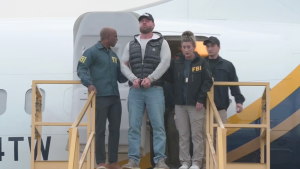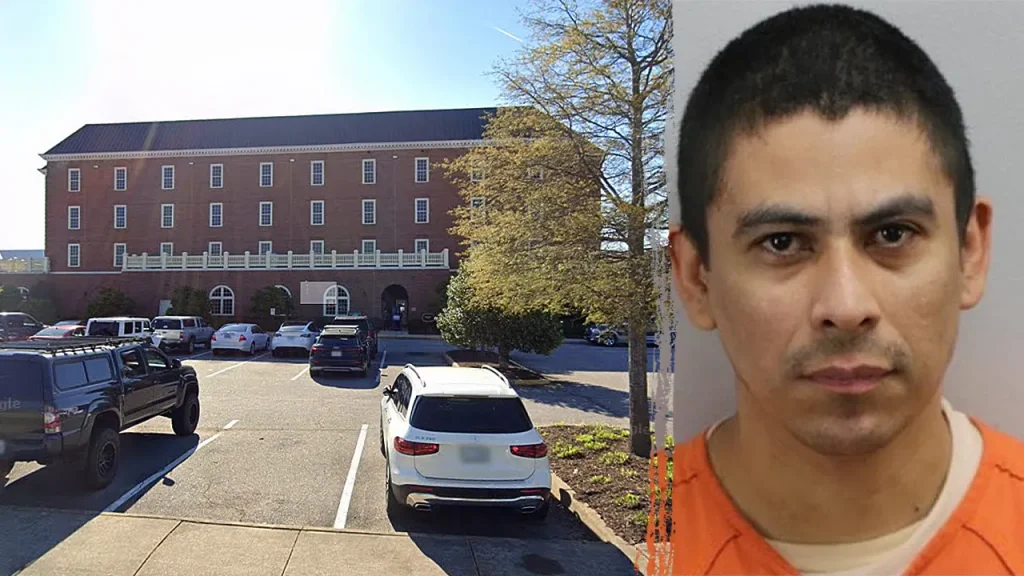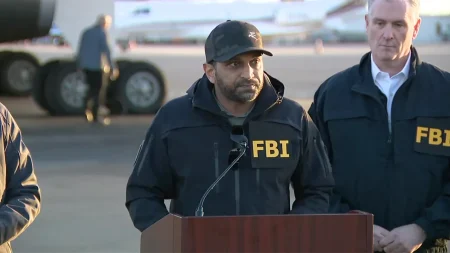Immigration Crime Case Sparks Political Debate in Virginia
A disturbing criminal case in Virginia Beach has ignited a heated political debate over immigration enforcement policies in Virginia. Ricardo Leonel Mejia, a 35-year-old undocumented immigrant from El Salvador, has been sentenced to 30 years in prison after pleading guilty to repeatedly raping an 11-year-old girl. The Virginia Beach Sheriff’s Office publicly addressed the case on social media following “numerous public inquiries,” stating that after Mejia serves his sentence in the Virginia Department of Corrections, he will be transferred to Immigration and Customs Enforcement (ICE) custody. This case has quickly become a flashpoint in Virginia’s ongoing gubernatorial race, highlighting deep divisions over how local law enforcement should interact with federal immigration authorities.
The circumstances surrounding Mejia’s crimes are particularly troubling. Court documents reveal that the assaults occurred in 2024 when Mejia was hired to renovate the family’s bathroom, giving him access to their home. The abuse only came to light when the victim’s mother discovered Mejia in her daughter’s bed after forcing open a locked door with a butter knife. Upon discovery, Mejia fled through a window but was later identified and arrested. During his sentencing, Mejia offered an apology to his victim, saying, “I know I am not the only one experiencing hard times. I’m sorry for the pain she is going through in this process.” He was subsequently convicted of multiple counts of raping a child under 13, indecent liberties with a minor, and statutory burglary. Records show he was booked into the Virginia Beach Correctional Center on October 9, 2024.
The case has become central to Virginia’s political discourse, particularly regarding immigration enforcement policies. Democratic gubernatorial candidate Abigail Spanberger has reportedly stated that one of her first acts in office would be to reverse Governor Glenn Youngkin’s immigration enforcement policies, which critics suggest would effectively make Virginia a “sanctuary state.” According to the Republican Governors Association, such a policy would prevent local law enforcement from assisting ICE in cases like Mejia’s, where federal authorities have issued a detainer for an undocumented immigrant convicted of serious crimes. This approach to immigration enforcement has become a key dividing line between candidates, with Virginia GOP gubernatorial candidate Winsome Earle-Sears expressing she was “sickened beyond words” by the case, implying support for stricter cooperation with federal immigration authorities.
The Mejia case emerges against the backdrop of intensifying national debates over immigration policy and enforcement. ICE has confirmed that Mejia was in the country illegally and has issued a detainer, meaning he will be transferred to federal immigration custody after serving his 30-year sentence in Virginia. This process represents the standard procedure for non-citizens convicted of serious crimes, though the implementation of such transfers varies significantly across jurisdictions nationwide. Some localities have chosen to limit their cooperation with ICE detainers, citing concerns about community trust, while others maintain close working relationships with federal immigration authorities, particularly in cases involving violent crimes.
The impact of such crimes extends far beyond the immediate victims to influence public policy discussions at local, state, and national levels. For the 11-year-old victim in this case, the consequences are deeply personal and will require long-term support and healing. For communities, such cases often prompt difficult conversations about safety, immigration, and the balance between enforcement and integration. Law enforcement agencies frequently find themselves navigating complex jurisdictional questions, while elected officials face pressure to craft policies that both protect public safety and reflect their constituencies’ values regarding immigration enforcement.
As Virginia and other states continue to grapple with these challenging issues, cases like Mejia’s serve as painful reminders of what’s at stake in these policy debates. Immigration enforcement decisions involve complex trade-offs between community trust, public safety, resource allocation, and humanitarian concerns. What remains clear, however, is that preventing violent crimes must remain a priority across political divides. While reasonable people can disagree about the optimal approach to immigration policy broadly, there is universal agreement that violent offenders who prey on children deserve to face justice. As Mejia begins his 30-year sentence, the broader conversation about immigration policy in Virginia—and its implications for public safety—will undoubtedly continue, influenced by both the facts of this case and the deeply held values of Virginians across the political spectrum.









